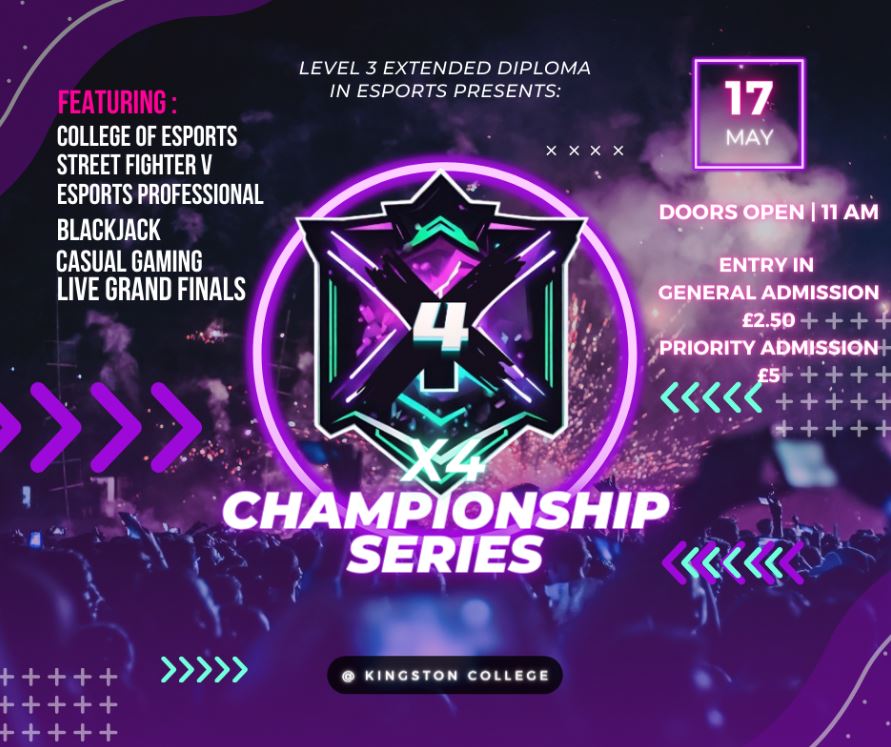Key Facts
- Starting
9 Sep 2024- Location
- Kingston Hall Road Centre
- Start Date
- Sep 2024
- Level
- Level 3
- Code
- KCW3013CF

L3 - Wellbeing
This qualification is designed to increase learners' knowledge and understanding of Wellbeing including mental health and counselling skills. It is recommended to those learners with a keen academic interest in understanding human psychology, wellbeing, counselling, mental health and the applicability of psycho-social strategies to support wellbeing.
Successful completion of the required units will allow learners to develop in-depth knowledge and understanding of mental health, wellbeing & counselling. It will also support the learners' progression into relevant employment within the health and social care & counselling sectors or onto further study options such as philosophy, law, marketing, sociology, communication sciences and advocacy.
The course blends theory, practice and reflexivity, with a very strong focus on applicability. Students are guided in developing their own projects and mental health campaigns.
This counselling qualification aims to introduce learners to the use of counselling skills in everyday life and work, and some of the approaches that underpin the use of these skills. This qualification gives learners the opportunity to investigate the knowledge and skills needed to use counselling skills and engage in a helping interaction appropriately. This qualification does not qualify learners to practise as a counsellor.
-
Entry Requirements
A Level 2 qualification is required and students will need to be prepared to study English/ maths alongside this programme if a Grade 4/C has not already been achieved in these subjects.All candidates will be invited to attend a recruitment interview where you can discover more information about the course.
All candidates are subject to interview and successful initial screening.
-
Course Content
This course has been developed to enable students to study for two years. In year 1, you will study Level 3 Certificate in Understanding Mental Health and a Level 2 Certificate in Counselling Skills.Mental Health Sample Course Structure – Year 1
Modules I. MH Foundation II. MH Prevention, Pathology & Treatment III. MH Professions and MH Work IV. MH Legislation and the Criminal Justice System V. MH Promotion
Learners are required to successfully complete 6 mandatory units on the Counselling Certificate programme: • Unit 01 Using counselling skills • Unit 02 Introduction to counselling skills theories • Unit 03 Diversity and ethics in the use of counselling skills • Unit 04 Counselling skills and personal development
In year 2, you will progress onto Level 3 Diploma in Counselling Skills. Learners are required to successfully complete 5 mandatory units:
- Unit 01 Developing counselling skills
- Unit 02 Theoretical approaches in the use of counselling skills
- Unit 03 Working ethically with counselling skills
- Unit 04 Counselling skills and diversity
- Unit 05 Counselling skills and personal development
You will also undertake a period of work experience.
-
Progression Next Steps
Please note qualifications on this study programme do not carry UCAS points, however, learners can progress to similar qualifications at a higher level such as the Level 6 BSc (Hons) Mental Health, Well-being and Society at Kingston College. There are opportunities across the Health sector for those wishing to progress into employment. We are in process of developing a joint programme with the A Levels Psychology course team for those interested in achieving UCAS points, and further skills and knowledge.Learners must achieve both the L3 Mental Health and the Level 2 Counselling qualification to progress to Year 2 (Level 3 Counselling).
-
Additional Information
The programme commences in September and continues for two years.It is important to know that the contents of the programme might be challenging due to the sensitivity of the subject and associated themes. The Mental Health qualification does not include sessions of mental health support for the students. This is an academic programme which is different to mental health support. The programme is not recommended to anyone who experiences mental health problems as it might cause further distress. Please discuss this at interview stage to make a decision as to whether this programme is suitable for you.
There is a requirement that a period of work experience, in related industries, is undertaken during the two years of this course.
This course is aimed at learners aged 16-18.
We are firmly committed to finding the right course for you to ensure you can flourish. Talk to us today if you have any concerns about the application process, we are here to help take you to the next level.
-
Course Structure
In year one of this qualification, you will focus on the study of wellbeing including mental health and holistic therapy to support different occupational areas and offers breadth and depth of study, incorporating a key core of knowledge and understanding.The objectives of this qualification are to help learners to understand Mental health legislation, services, public attitudes and how these have evolved. Learners will gain knowledge of how to support mental health and well-being through various stages of life, what treatment options are available and the potential consequences of mental ill health. These are all skills required to work in the mental health service. Holistic therapy will include practical sessions working on clients.
In year 1, alongside this programme you will be expected work towards achieving your GCSE English and Maths at a 4/C or above. If you have already achieved your GCSE English and Maths at 4 there could be an option to study an A Level in Psychology. Please discuss this at interview stage.
In year 2, you will gain in-depth knowledge of the use of counselling skills in everyday life and work and the approaches that underpin the use of these skills.
-
Assessment Details
All assessments are internally assessed with students completing a portfolio of evidence.




